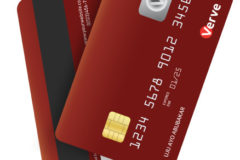Hackers and cybercriminals use hundreds of tactics to exploit technology and gain access to your personal data. It’s a harsh reality and it happens every day in the digital world. The good news is that there are several countermeasures and robust protective methods you can employ to keep your data safe. Take a look at some of the common methods hackers use to steal your personal information.
Webcams
A hacked webcam seems like something out of a Hollywood movie, but it’s more likely than you think. There are several ways hackers can infiltrate a webcam. A popular method is through its internet connectivity. A hacker infects your computer with a virus, which allows them to gain access to the webcam. Once inside, they disable the “on” light to look as if the camera is not on. Then cybercriminals can monitor the room as well as conversations.
Norton 360 with LifeLock offers an all-in-one information security suite that keeps you secure when your webcam is in use. Safecam prevents applications and malware from accessing your webcam without permission. When the system detects a threat has breached the webcam, it will notify you so proper steps can be taken to stop further intrusion.
Password Theft
Passwords are a highly sought-after piece of data by cybercriminals. Many of us are guilty of keeping a list of passwords somewhere on our smartphones or computers. It’s usually in plain sight and unprotected. If a hacker gets into your system, they will have access to this data and the results can be devastating. Password theft also happens during data breaches and can be used in identity theft.
All-in-one protection offers a practical solution. A password manager allows you to store your usernames, account passwords and log-in codes in one secure place. Gone are the days of using easy passwords like your dog’s name followed by 123. You need a unique and complex password or phrase to stay secure. How can remember all those passwords? Using the password manager feature allows you to use complex passwords that are difficult to hack and store them securely in an encrypted online vault.
No-Log Security VPN
This defense can be quite effective because it keeps cybercriminals from prying into your personal information when they hack into your computer. If a hacker gains access to your computer, they can normally see your online activity and follow the breadcrumbs to sensitive data like bank records, medical information and other personal data.
No-log security VPNs do not store any of your data. Hackers are unable to see any of your online activities. Think about all the places you visit online every day. No bread crumbs to follow because passwords and personal data do not get recorded. This safeguards your sensitive data like bank and financial details, and your search history. It’s all completely safe from those that wish to do you harm.
Cybercriminals are relentless and will stop at nothing to exploit technology and steal your data using a variety of methods. Proactive resources help you create layers of security around sensitive personal data, and keep you safe and secure while spending time online.




















